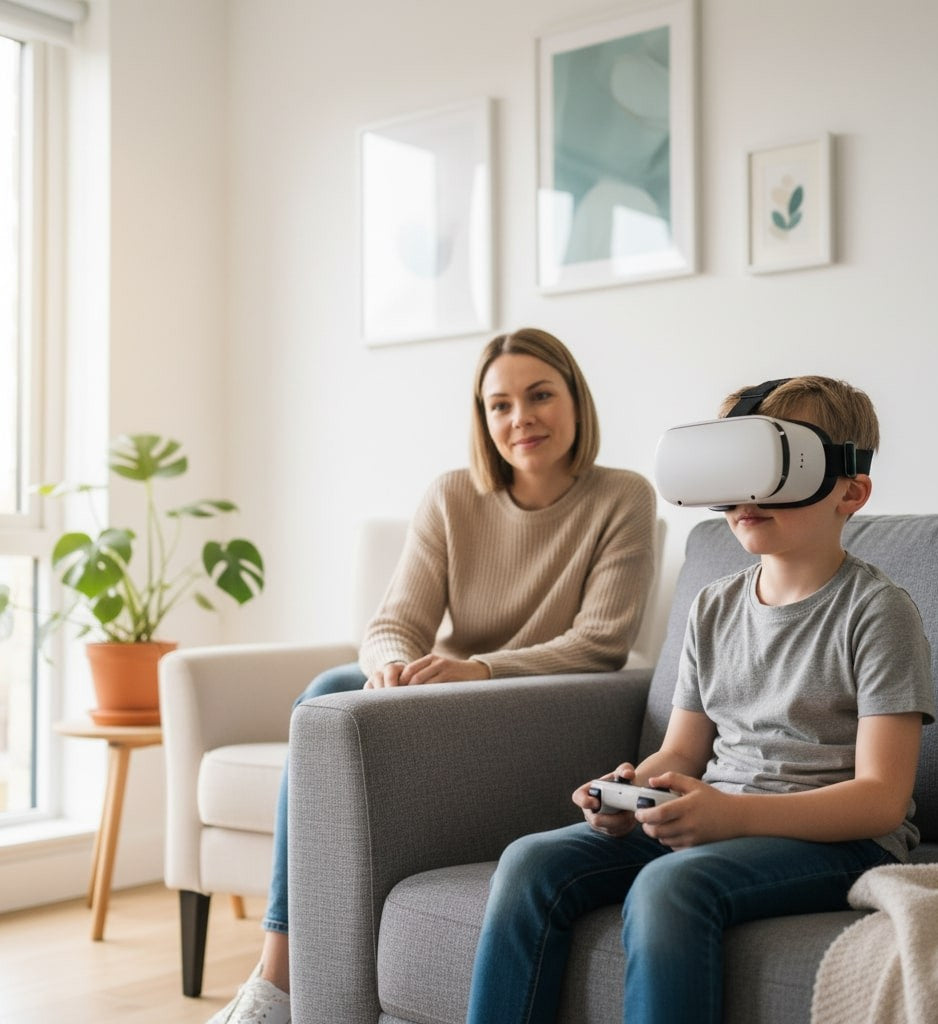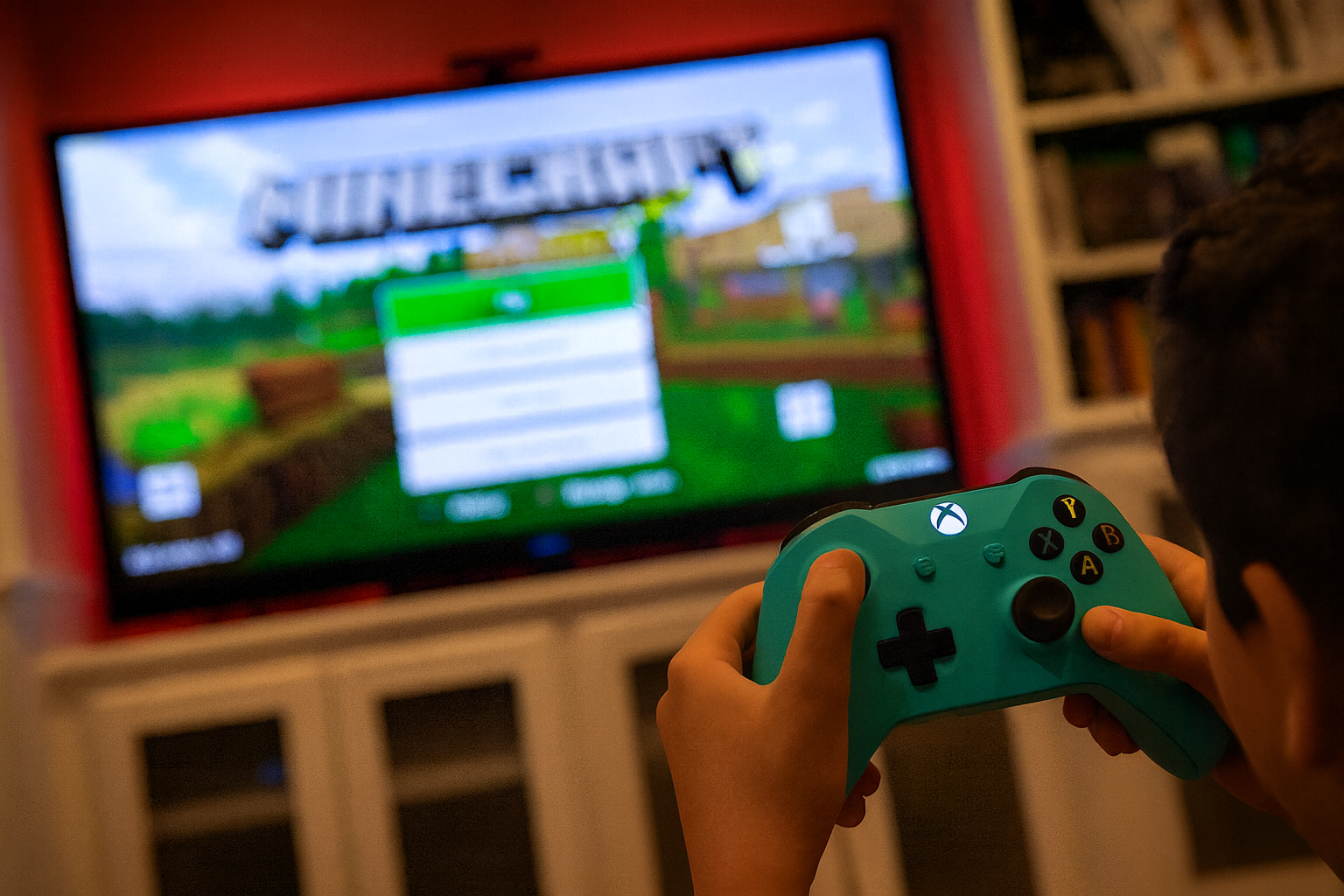Esports or gaming?
Esports and gaming are terms often used interchangeably, but they represent different experiences. While both revolve around video games, the similarities largely end there.
It can be hard to spot the difference between esports and gaming. The main difference is that esports is competitive, whereas gaming is more about enjoyment at a hobby level.
When it comes to casual gaming vs competitive gaming, casual gaming is often far more popular among children. Kids are often drawn to the fun, social, and playful aspect of gaming, while esports is mostly for older kids or adults, is competitive, and takes a lot of practice and discipline.

What is esports?
Esports is about playing video games at an elite level, where the focus is on competition, winning prizes, and proving who is the best. Professional gamers meet at international elite competitions with referees, sponsors, and rules to compete in teams or solo.
But is esports a real sport? Yes, esports is increasingly becoming accepted as a real sport. Even though there is no physical running or interaction with opponents, only virtual, esports players follow a strict training schedule. They work with coaches to develop strategies and skills, and always prioritize the competitive aspect.
Players have their own equipment, such as computers, keyboards, mice, and headsets, and they compete in national and international tournaments, where prestige and substantial prizes are at stake.
Already, there are two major recognized international esports competitions. However, not part of the official Olympic Games, the first Olympic Esports Games are planned to happen in 2027.
Is esports good for kids?
There are no age restrictions for kids to enter esports other than the age limit of the game itself. However, there are a few things to consider if your child wants to get into esports.
Esports for kids might not mean entering high-level and tough competitions right away, but it does mean many hours in front of the screen for practicing. If you want your child to limit their gaming screen time, this is not the sport for them.
Getting into esports might affect sleep, physical activity, and other daily activities, and even eyesight and diet from the long hours in front of the screen. For a child who is still growing and developing, it can have negative health impacts to stay inactive and in front of a screen for long periods.

Esports are also often played in teams, which means they will have to follow a schedule when practicing. This way, you can't easily adjust screen time to fit their life, but might have to do it the other way around.
So the question is, is esports good or bad for kids? That will be up to parents’ assessment, considering their child's age, lifestyle, and ability to maintain a healthy balance.
However, like any elite sport, esports can become a successful career for some, and it can be a great joy to see your child follow their passion.
Casual gaming
Regular gaming, however, is something else than competitive esports. In contrast, gaming is more casual, centered around having fun rather than competing. Most kids see gaming as a hobby, where the emphasis is on either a relaxing time alone or social interaction with friends, enjoying a fun activity.
Gaming can happen on the same console and screen, with players physically in the same room, or remotely, connected via headsets. The primary focus is entertainment and play, and fun competition.
Additionally, casual gaming can be adjusted to fit the daily life of the child, allowing time for other important activities. This way, kids can enjoy the benefits of gaming for kids without screen time taking over and parents getting the feeling that their child plays too many video games.

A matter of perception
Casual gaming doesn’t always receive the understanding and recognition it deserves compared to competitive esports. For many kids, gaming is their favorite hobby, but often still viewed as a meaningless, passive pastime, without looking into the qualities of the specific game and overlooking the social connections and creativity it can foster.
This lack of recognition is unfortunate because it can leave many children and teenagers feeling like their hobby is wrong or not worth pursuing. They may experience conflicts over gaming in the family and perceive their parents and other adults as ignorant, unsupportive, restrictive, and consequently unfair.
Remember that for your child, gaming isn’t just about sitting passively in front of a screen. It can be a way to practice strategy, problem-solving, teamwork, and friendship, while immersing themselves in a fantasy world where they can become the main character. Even if it’s not practiced at a competitive level.
What happens in casual gaming has many of the same elements as elite esports, just at a different level where winning prizes isn’t the ultimate goal.
Understanding kids and gaming takes curiosity, interest, the right questions, and a lot of listening to get an insight into their complex gaming world. This is not always easy for us outsiders. So, if you are at a loss for how to talk to your child about gaming, you are not alone.
This is why conversation cards for families focusing on understanding children’s unique gaming experience are a great tool for parents who want to connect with their children over gaming. Getting support from pre-constructed questions around gaming has proved to do wonders for parents who want to bond with their kids over their digital hobby.

Competition vs. community building through gaming
For most children and teenagers who are into gaming, it’s the game’s social aspect, adventure, and exploration that excites them, not the competition. This is evident when gaming clubs for kids organize gaming events; esports events often draw little interest, while regular gaming events are packed.
Kids love gaming and connecting with friends and the community, but only a few are interested in doing so competitively. Gaming communities for children focus on this part of the gaming experience, providing a space to foster these social benefits of gaming for kids.
It’s not about esports being better than gaming or vice versa. They are simply two different approaches to playing video games. As adults and parents, it’s important to understand this distinction and to value both equally, as each offers unique benefits.





